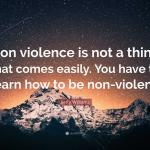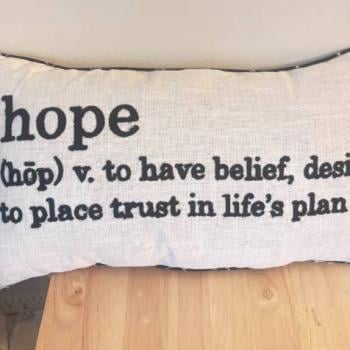We are hearing a lot about violence these days. Has it ever gone away? Will we ever find peace?
As we celebrate Black History Month, I want to briefly highlight the nonviolent thinkers and doers of the Civil Rights movement, I then want to narrow my focus to how we can cultivate nonviolence in ourselves.
Blessed are the Peace Makers
Jesus was a nonviolent prophet. He used power carefully. But what is nonviolence? In digging around for something I have not talked about. I want to reiterate my earlier point; Jesus was a nonviolent prophet. Again, researching this notion, I came across several blogs that suggest this is a myth. From reading the comments and the blogs, it was apparent that the authors of these blogs did not have clear idea of what Jesus’s Judaism or even Judaism today is all about. See this article by Simon Joseph of the California Lutheran University: https://bibleinterp.arizona.edu/articles/2014/11/jos388005
Judaism and non-violence
In Judaism, the Hebrew word for peace is shalom. It suggests a sense of completeness or wellbeing. In Judaism, peace is the ideal state of affairs. It is the ideal state of affairs with others, your community, your world. This is heart of what Jesus is saying when he blesses those who are peacemakers.
Judaism’s religious texts endorse compassion and peace, and the Hebrew Bible contains the well-known commandment to “love thy neighbor as thyself”. Nonviolent philosophy has roots in Judaism going back to the Jerusalem Talmud of the third century. In Judaism, there is strong language that restricts the use of violence. In Judaism, a life of truth, justice and peace are the three tools one uses for the preservation of the world.
Against this backdrop, Jesus taught and took a stand. Following in his shadow, Martin Luther King and others took up these three tools to better the communities of their black brothers and sisters.
King’s Nonviolence
According to the King Center (https://thekingcenter.org/about-tkc/the-king-philosophy/), their definition of nonviolence reads, “Nonviolence is a love-centered way of thinking, speaking, acting, and engaging that leads to personal, cultural and societal transformation.”
King was inspired by Jesus but took his formation into a nonviolent activist from the works of Ghandi, who engaged in nonviolent activism to help the Indian people free themselves from British rule.
King worked with six principles for his approach to nonviolent protest (https://www.unodc.org/documents/e4j/Secondary/Terrorism_Violent_Extremism_Six_Principles_of_Non-Violence.pdf ):
Principle one: Nonviolence is a way of life for courageous people. It is active nonviolent resistance to evil. It is aggressive spiritually, mentally, and emotionally.
Principle two: Nonviolence seeks to win friendship and understanding. The result of nonviolence is redemption and reconciliation. The purpose of nonviolence is the creation of the Beloved Community.
Principle three: Nonviolence seeks to defeat injustice, not people. Nonviolence recognises that evildoers are also victims and are not evil people. The nonviolent resister seeks to defeat evil, not people.
Principle four: Nonviolence holds that suffering can educate and transform. Nonviolence accepts suffering without retaliation. Unearned suffering is redemptive and has tremendous educational and transforming possibilities.
Principle five: Nonviolence chooses love instead of hate. Nonviolence resists violence of the spirit as well as the body. Nonviolent love is spontaneous, unmotivated, unselfish and creative.
Principle six: Nonviolence believes that the universe is on the side of justice. The nonviolent resister has deep faith that justice will eventually win. Nonviolence believes that God is a God of justice.
King’s nonviolence was not just not hitting back, it was more about putting oneself in the path of violence and responding with love. It was in another way, seeing all people as potential seats of Christ.
We are all Potential Seats of Christ
You are God’s beloved. The King Center’s first principle is respect everyone – including yourself. In reading and contemplating this section of my reflection over the last few days, my mind is continually drawn to cultivating a robust Metta awareness and daily practice of metta.
Simply in this meditation, we consider this: May you be happy, safe, at ease. From here, we contemplate offering this to others, first with someone we love then maybe somebody we are slightly cross with and then, with practice, our enemies.
Cultivation of nonviolence starts with us. We must recognize the hate within ourselves to see the hate we have for others. Until we can see our own suffering, we will not be able to see it in others. Our seeing will be disingenuous.
Reference:
(n.d.). Martin Luther King, Jr.’s Six Principles of Nonviolence handout. United Nations. Retrieved February 10, 2024, from https://www.unodc.org/documents/e4j/Secondary/Terrorism_Violent_Extremism_Six_Principles_of_Non-Violence.pdf













